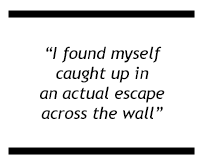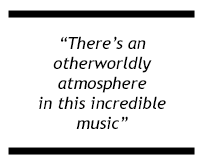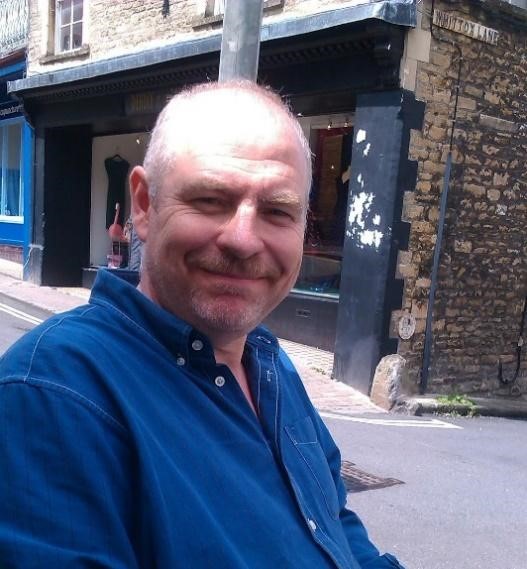Joni Mitchell - Blue
Blue was the first album I ever bought, aged sixteen, around 1981, and this was a full-price, new LP, not a 50p car boot sale job, or one of the hundreds of bootlegged cassettes copied from friends that filled shelves and drawers or sat in piles against the wall. Blue, released in 1971, has a wistful, nostalgic feel and through tracks like California, which I overplayed to death, creates an image of warm, west coast evenings by the ocean. The album evokes the whole late sixties cool, counterculture scene that had finally made it via American films onto British TV by the late 1970s to corrupt me. Anti-Vietnam protests, pot, free love, Woodstock, black power and hippie culture - this all promised a heady escape from the grey skies above home in a high rise in Walton-on-Thames in dull, conservative-voting Surrey. In 1981 Margaret Thatcher was swinging her wrecking ball at the country and a flag-waving war in the Falklands was on the horizon. I wanted to swap the misery of British winters for a driftwood fire and a bare-footed girlfriend like the pensive beauty on the moody cover of the album and wallow in the pain of a doomed love affair. The second to last track is A Case of You which is what we all want - to be completely intoxicated by love. I’d have to wait two years to meet someone who also loved Blue and was the free spirit I saw in that album cover and heard in Joni Mitchell’s tender songs of lost love.
John Coltrane - Coltrane Plays the Blues
I was going to write about The Smiths’ Hatful of Hollow, but Morrissey’s antics in recent years have put me off so much I can’t admit how much I listened to that album in 1984. Instead, I’ll talk about the album I listened to most while living as a student close to the seafront in Whitstable later that year: Coltrane Plays the Blues. My friend and housemate Phil Jacobs gave me an education in jazz, from Miles Davis to Coleman Hawkins, but it was John Coltrane who got me really hooked with the transcendent quality of his playing. We had a Betamax videotape of a jazz set with Miles Davis, John Coltrane and McCoy Tyner recorded from TV that was played late every weekend in the living room after a pint of cider at the Harbour Lights and a few roll ups. Blues to Elvin, Mr Day or Mr Knight recall oily red sunsets, a fug of homegrown, and sitting in the dark with my housemates, trying to work out what made these sets so hypnotising. John Coltrane’s daughter Alice Coltrane can be the same - playing with a kind of spiritual intensity that takes jazz into a different realm. Many people detest jazz, but if you like the gateway drug of Miles Davis’s Kind of Blue, try a shot of Coltrane Plays the Blues late at night and stare into the abyss of jazz dependency.
Fela Kuti - Anthology 2
Zombie is just one twelve minute song on a Fela Kuti mixtape recorded by a Nigerian friend in Kent in 1985 onto a C90 cassette. Ade recorded about five precious Fela C90s like this for me, although most have now perished. The pulsing sound is Afrobeat, but Fela called it African classical music and wouldn’t record shorter, radio-friendly tracks. Why should he? Beethoven and Wagner didn’t write three minute tracks and neither did Fela. His music is driving, hypnotic, intensely political and gets under your skin. His rebel sound also seems to have been woven into music everywhere since Fela died in the late 1990s. While Bob Marley’s conscious lyrics dominated student dorms everywhere four decades ago, his more mellow sound is heard much less frequently today. The vibrant, frantic, angry, pulsing sound of Fela Kuti fits our demented times. Zombie is about police and soldiers who act like zombies, carrying out orders, savagely beating people, keeping the lid on political protest. It is about the kind of murderous violence that nearly killed Fela, and which ultimately killed his mother, when 1,000 troops surrounded and burned his home to the ground in Lagos in 1977. If you want a defiant soundtrack that connects Lagos with Black Lives Matter, Trump’s fascism, France, Hong Kong, Belarus, Myanmar or any angry crowd near you, then this is it. Other tracks on the mixtape include Yellow Fever, Gentlemen and Shakara. The compilation Anthology 2 released in 2010 is about as close a match for Ade’s mix tape and contains many of the classics.

David Bowie - Scary Monsters (and Supercreeps)
My cousins Sue and Nick were fans of Bowie back in the 1970s and at the age of ten I was introduced to Diamond Dogs and Ziggy Stardust at ear-splitting volume in their house. By seventeen I had all their albums recorded on cassette and they were a constant through university where I met Sarah, whose equal love of Bowie was like shared sacramental wine in a desert of 80s pop. When, in 1986, we were both offered teaching jobs at Jena University in East Germany, I saw a chance to relive the Bowie Berlin years of Low and Heroes, in Cold War monochrome, with coat collar up against the snow and V-2 Schneider on the Walkman. For the first innocent year they were the perfect albums for the exciting adventures we experienced and friendships we made. But I found myself caught up in an actual escape across the wall by a friend called Christian, who, without my knowledge, had ‘borrowed’ my passport to escape with his American girlfriend. All the romantic posturing of Heroes had suddenly turned into a nightmare. For about a month, it was the more intense and discordant Scary Monsters album that became the soundtrack to a gnawing dread of possible imprisonment. I was interviewed seven times by the Stasi under suspicion for helping a defence industry worker escape to the west with an American accomplice, before they established I was just a twenty-two year old idiot, not a spy. The album still scares me - from the anguished It’s No Game to the frantic Up The Hill Backwards, with Robert Fripp’s brilliant, strung out, distorted guitar and Denis Davis’s unnerving drums seem to slow and slur unnaturally and then suddenly lurch forward. When my daughter put the album on, for the first time, thirty years later, I suddenly realised how much this complex and terrifying album has affected me.
Roxy Music - Manifesto
Roxy Music made many great albums - some brilliant early ones with a wild-eyed Brian Eno in mascara and silver flares, and a few later ones that have the insistent beat of a drug-fuelled catwalk, with Brian Ferry as the sinister lothario-compere. Some of the woozy tracks on the later albums verge on syrupy - like drinking a Campari and Calpol cocktail. Somewhere in the middle period is Manifesto. The title track builds like a train emerging from a post-apocalyptic city with slow subterranean beats and builds a dark, discordant and unstoppable energy that has a worryingly torchlit feel to it (and knowing Bryan Ferry you’d be right to be worried). Angel Eyes and Ain't That So are for putting on when the party needs to get going. Living in Manchester in the early 1990s, after a long, drunken February night at one of the magical Town Hall Carnivals, we returned home to Levenshulme with a group of friends. Instead of slumping onto the sofa, we swayed about the living room to these tracks. Best played with a house full of pie-eyed friends in full fancy dress, but, if this can’t be arranged, you can recreate the debauched atmosphere of a 1980 New York fashion show warehouse wrap party with just a few cans of Boddingtons, half a bottle of Cava, a pack of low-tar cigarettes, and this album.
Supergrass - Supergrass
In 1995 I married Sarah and we moved to Oman for new jobs. We both liked the Supergrass singles from the first album and bought their second and third albums on cassette in 1997 and 1999 when we were living in the remote desert town of Ibri with our baby son, Tom. We had to drive to Dubai about 4 hours away to buy music at the HMV store in a huge mall there, in an age before Amazon or streaming music. We would then play the albums on the long drive home to Ibri. The temperature got up to high-40 degrees centigrade in the summer so music had to be played at full volume to drown out the sound of the roaring air conditioner. The title track of the second album, Sun Hits the Sky and Late in the Day are belters. The self-titled third album contains the absolute classic track Moving on it, which also has one of their best videos showing the band burned out and crashing on a series of anonymous hotel beds. In 1999 we moved again to take up new jobs in the United Arab Emirates, with all the upheaval of moving from one country to another, and the song fit the times. The energy and complexity in all their albums make them perfect for the holidays, especially on the final leg of a long drive up into the beautiful green hills and forests of the Auvergne, in France where we would head every summer. Even with the air conditioning off we still play it as loud as it will go. In December 2009 we saw Supergrass’s excellent Christmas show in Oxford, shortly before they split. I think Britain lost its soul somehow on that day and it has been downhill ever since. Their seven albums get put away at the end of the holiday as there is nothing worse than getting sick of music close to your heart. I just wish, like Bob Dylan, they would find a fresh vein of creativity in old age and do some more albums.
Cesaria Evora Sodade - Miss Perfumado
We were introduced to Cesaria Evora by our friends Nigel and Trudy back around 2003 at one of their epic parties in the vast, glamorous mansion they rented for a few years in Al Ain, a couple of hours out of Abu Dhabi. We were all teaching at a local Emirati Technical College, but weekends had a touch of the Great Gatsby with ‘expats’ meeting up for drinks at the local hotel poolside, or for dinner parties at one of the absurdly large villas at the edge of the desert you could then rent quite affordably. I recently rediscovered Cesaria Evora’s music through this album Miss Perfumado when I stumbled across the song Sodade - an excruciatingly beautiful track that reminds me of those good times. Its melancholy, swirls with longing, and memories of friends who are now a lifetime away. Angola is wonderful too and the black-and-white video for this is a classic - very simple, just the musicians playing outside in a whitewashed, palm-fringed courtyard. Cesaria Evora, who died aged 70 in 2011, was from Cape Verde which has produced some of the most soulful music on earth. It must be very lonely living in the middle of the Atlantic, on a tiny island, utterly isolated from the rest of the world. Listening to Sodade I imagine dark, steaming-hot evenings, friends far away, a few lights twinkling in the tropical hills above the beach, and the nearest city Dakar in Senegal 400 miles away, far over the horizon. There’s an heartbreaking, otherworldly atmosphere in this incredible music.

Sant Andreu Jazz Band - Live at Jamboree - Barcelona
There are a lot of better, more well-known albums that didn’t make the eight (how are Happy Mondays, Bjork, James or The Velvet Underground not here?), but this band has become important to us recently. During lockdown we were saved from madness by the brilliant French radio station FIP and then following up music we liked via Youtube. This is how we came across a group of incredible young musicians from the Sant Andreu Jazz Band in Barcelona led by Joan Chamorro, who is the talent childcatcher of Catalonia. There’s an entire stable of singers and jazz musicians that have come from this band like Rita Payes and Andrea Motis who have gone on to launch their own careers. This live album gives a flavour of what the group is capable of - creating the mood of an intimate, smoky night club from the 1940s - making these old jazz standards feel newly minted. Andrea Motis sounds at her best in the Portuguese numbers like Chega de Saudade and Corcovado, but it's the talent of the whole group and their output, not any single song that draws me to this and other live performances which you can easily find online. Playlists of music with less-heard-of musicians mined from FIP, Spotify and Youtube make a refreshing change to watching TV every evening and are great background when playing chess which, predictably, we have played a lot since watching The Queen’s Gambit. Maybe being in my late fifties it was always going to end up in the ‘dinner jazz’ zone, but I think this music will always remind me of lockdown which made a change from commuting miles to work every week. Sitting together in the evening with a glass of wine, chatting and drifting through a game of chess to this dreamy, exquisite music by the next generation of world class musicians is something that when, and if, lockdown ever ends I will miss that a lot.
Bio
David McQueen is the proud father of Izzy and Tom who are in far flung Liverpool and Canterbury. Izzy (Eight Albums #48) stole all my best albums and then had the cheek to ask me to remember some of my favourites for this (wonderful) project. I work at Bournemouth University and brew a Medieval style ale called Stone Angel on the side. You can find some of my projects at sputlight.com. I tweet on ale at @medievalale and rant on politics at @damcqueen



